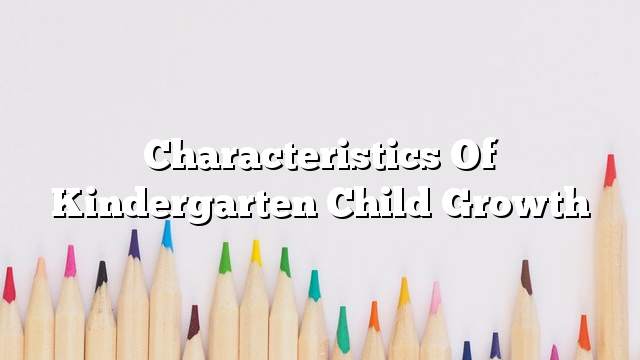early childhood
Early childhood extends from the age of three to six years, which is the pre-school stage. It is very important in the life of the child because he feels and understands what surrounds him and he is interacting with the surrounding environment and acquires the right compatibility with them. He learns about social systems and traditions. Emotional towards others, during this stage also notes the rapid growth of the child especially his linguistic ability.
The child is often assigned to kindergarten or kindergarten at this age to increase his / her ability to learn and to be in harmony with other children in the same class. The response to this kindergarten differs from child to child depending on several factors.
Characteristics of Child Growth in Kindergarten
Psychologists focused on the need to pay attention to children at this stage because it will directly affect his personality in the future, and no matter how many positions are stored in his mind and walking in a certain direction, so educators and parents to know the characteristics of the child’s development at this stage to be able to monitor and ensure the growth The child properly, and these characteristics:
- Physical growth at this stage is slower than in the previous stage, but the child grows up to about 43% of the final growth at the age of 6.
- The right hand preference appears when most children use it properly, but some may use the left hand, and parents should try to train the left-handed child to replace it with the right hand.
- The motor skills are clearly visible from a social child. He tends to play, and as he grows older, he becomes more able to achieve balance so that he can easily jump and lace.
- The growth of the nervous system increases with the weight of the brain reaching 90% of its full weight in adults.
- In this stage, the child is characterized by long-sightedness, where he sees the larger and the larger things more clearly than the objects nearby and the small ones, and this is normal as the age increases, his eyesight returns to normal and the hearing is not fully mature at this stage. But the sounds of birds, trains, cars and other clear voices.
- Learn letters and numbers and be able to write well, and then be able to form words and read the letters, and the ability to remember things and understand a lot of simple information and how things are going, and can learn from his experiences, and become more emotional character.
- He becomes able to form the concepts associated with time, place and counting, and increases his ability to focus attention.
